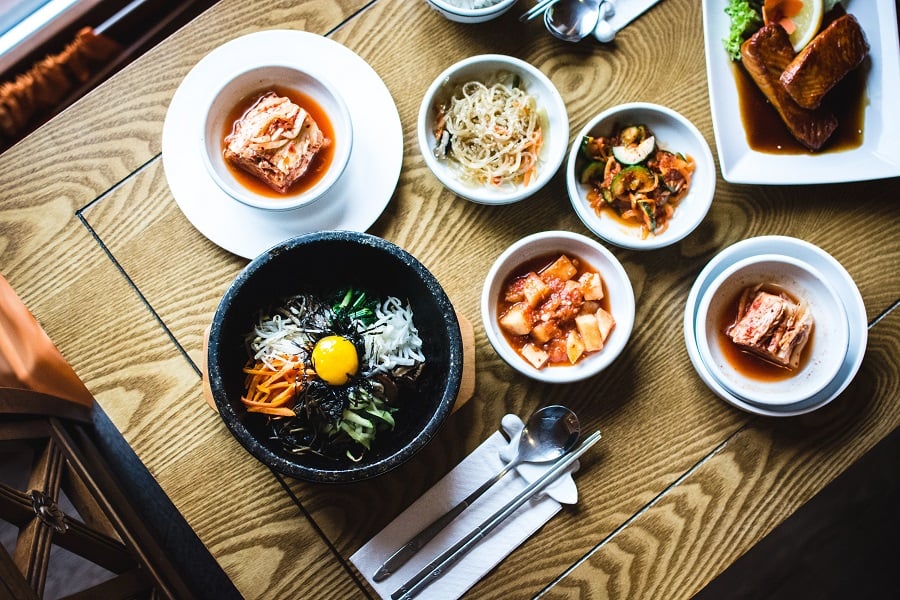
I remember my mom’s face, the first time I asked her not to pack Korean food for lunch. It brings tears to my eyes even as I write this.
Growing up, my Koreanness never felt like something to be celebrated. It felt like a curse. I was ‘lucky.’ My dad’s face protected me in ways I never knew until much later, and yet that also felt like a curse.
It wasn’t for nothing. I was tired of kids making fun of me. It seems weird as a child to explain to people why you’re eating the food you’ve eaten at home your whole life, for lunch at school. Back then our parents wanted us to so desperately fit in; to be American. It’s why they were here in the first place, to give us American opportunity.
The same thing happened with Kpop. Growing up I listened to H.O.T., SES, Baby VOX, and COOL. My sister’s obsessions included Wonder Girls, Girls Generation, and DBSK. Kim Gunmo’s 잘못된 만남 / Wrongful Encounter was my family’s cleaning album, and every time my mom popped it into the CD player I’d start cleaning, or find homework to do.
When my sister took driver’s ed, whoever was driving picked the music. Picking Kpop to drive to, and reading Manhwa’s (Korean comics) became bullying material on top of her already Korean face and our biracial heritage. It’s why in this great time when Asian American and Pacific Islander (AAPI) representation is growing, it’s sad to see an article about Rebel Wilson writing and producing a story about Korean American’s experience, using Kpop’s popularity as a backdrop.
Rebel Wilson and Kpop
Actress Rebel Wilson recently told Vogue:
“We are making a film about K-pop, because he [Simon Cowell] is very musical. It will star primarily an Asian cast. And I just sold one to Universal about bi-racial twins. It was in the National Geographic recently and I thought it was very interesting; especially considering race relations in America, and to do a comic story line with overt themes about race in it but that isn’t overtly about race … it’s a very rare phenomenon. We are writing the script now. It’s in the early stages but it’s a big commercial comedy.”

As a biracial Korean American Kpop lover, I cannot begin to unpack everything in that statement from Rebel Wilson regarding Kpop. I don’t have the spoons, so I’ll just say this:
If you want to help us, help us sell our own stories.
Want to tell a story about a Korean American? Find a Korean American who is already telling the story, and then give them the producing power. In fact, Lyla Lee, author of the forthcoming Mindy Kim series, also releases a book next year titled, I’ll Be The One. According to Goodreads, “the book follows Skye Shin, a bisexual Korean-American teen girl who competes on a reality TV show to become the first plus-sized K-pop star, while falling in love with her competitor, Henry Cho, who happens to be a world-famous celebrity.” Our stories are full of emotions, heartache, and parental shame in ways white westerners will never be able to experience, yes, even the comedic ones.
Because they’re missing han.
Han is distinctly Korean. In fact, Korea is the only language that even has a name for it, and the feeling is almost impossible to explain in english. The first time I learned about han, I was 33 years old watching the South Korea episode of Street Food on Netflix, yet as I listened to the halmonie describe it, I knew exactly what it was and why my own mother never mentioned it once.
As Euny Hong so elegantly wrote in Lenny Letter,
“Han is not at all compatible with American life. It is also not compatible with Christianity, a religion espoused by a great many Koreans at home and abroad. The dissonance between Korean anger and the Western, Christian-influenced belief in forgiveness induces a tremendous internal conflict among Korean-Americans. To be Korean-American is to experience the excruciating pain of one’s innate nature turning against one’s environment.”
This means, Rebel Wilson, that you cannot write an authentic Korean American story without han.


